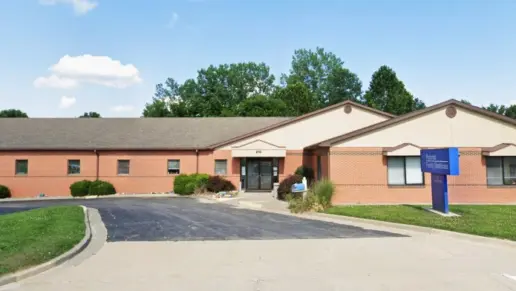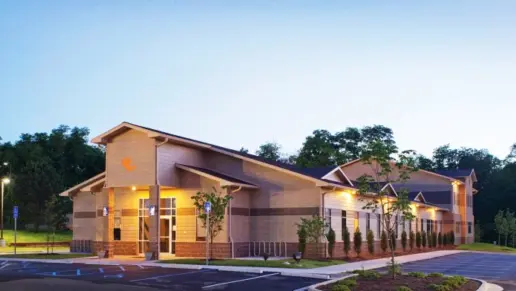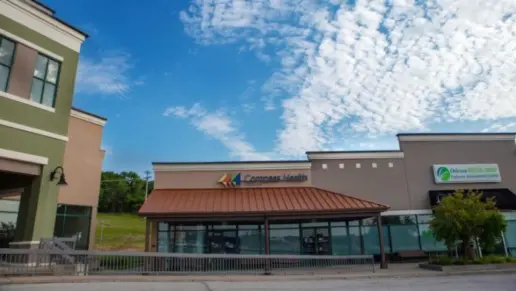I Spent time in Stapleton, there was alot of amazing, caring folks there. I was court ordered in as one angry prideful hurting drunk. I came home with a humble heart , full of gratitude and huge smile on my face , I had most caring, loving concealer but yet tough which ...
About FCC Behavioral Health – Stapleton Center
Stapleton Center is part of FCC Behavioral Health. They offer mental health, substance abuse, outreach, crisis services and primary care for adults. I like that you can go here to get support with mental health or addiction and also get your physical or get a prescription for an infection.
It’s also great that they accept commercial insurance as well as Medicare and Medicaid. Plus, if you don’t qualify, they have a sliding fee.
While FCC has several locations, the Stapleton Center gives you access to social detox, level 1 residential or level 1 day treatment, intensive outpatient and a traffic offender program. This clinic is open during regular business hours so it may be a challenge for you if you work or have school during the day.
The first step you’ll take is a screening and assessment. Then you’ll be assessed to find the right treatment for you. You might take part in group counseling and education, family or personal therapy, medication assisted services, drug screens, and case management.
The Level 1 residential program means you get 24/7 supervision and 60 or more treatment hours.
The day program lets you sleep at home while you attend the facility daily from 9am-3pm. Your third option is outpatient. Here, you live at home and attend treatment a few times a week. What you choose depends on how much support and treatment you need.
Rehab Score
Other Forms of Payment
Medicaid is a state based program that helps lower-income individuals and families pay for healthcare. Medicaid covers addiction treatment so those enrolled can use their coverage to pay for rehab. When a program accepts Medicaid the client often pays very little or nothing out of their own pocket.
Private insurance refers to any kind of healthcare coverage that isn't from the state or federal government. This includes individual and family plans offered by an employer or purchased from the Insurance Marketplace. Every plan will have different requirements and out of pocket costs so be sure to get the full details before you start treatment.
Self-pay involves paying for treatment out of your own pocket. You can use savings or credit, get a personal loan, or receive help from family and friends to fund your treatment. If you don't have insurance or your insurance plan doesn't cover a specific program, self-pay can help ensure you still get the care you need.
Financial aid can take many forms. Centers may have grants or scholarships available to clients who meet eligibility requirements. Programs that receive SAMHSA grants may have financial aid available for those who need treatment as well. Grants and scholarships can help you pai for treatment without having to repay.
Sliding scale payments are based on a client's income and family size. The goal is to make treatment affordable to everyone. By taking these factors into account, addiction recovery care providers help ensure that your treatment does not become a financial burden to you or your family, eliminating one barrier to care.
Medicare is a federal program that provides health insurance for those 65 and older. It also serves people under 65 with chronic and disabling health challenges. To use Medicare for addiction treatment you need to find a program that accepts Medicare and is in network with your plan. Out of pocket costs and preauthorization requirements vary, so always check with your provider.
Military members, veterans, and eligible dependents have access to specific insurance programs that help them get the care they need. TRICARE and VA insurance can help you access low cost or no cost addiction and mental health treatment. Programs that accept military insurance often have targeted treatment focused on the unique challenges military members, veterans, and their families face.
Addiction Treatments
Levels of Care
Treatments
The goal of treatment for alcoholism is abstinence. Those with poor social support, poor motivation, or psychiatric disorders tend to relapse within a few years of treatment. For these people, success is measured by longer periods of abstinence, reduced use of alcohol, better health, and improved social functioning. Recovery and Maintenance are usually based on 12 step programs and AA meetings.
Drug rehab in Missouri usually involves several phases: detox, rehab, and aftercare. The rehab phase may include a combination of inpatient and outpatient treatments, as the individual moves through a continuum of care on their recovery journey.
Co-Occurring Counseling is a service that provides counseling to those identified as having both a substance use diagnosis and a mental health diagnosis. Co-occurring issues are integrated into the recovery care plan and are provided by qualified personnel. Co-occurring specific groups are also provided. If it is determined that a person(s)-served needs a psychiatric evaluation, this service can be coordinated through the agency telemedicine program. The program is equipped with telemedicine equipment that will allow us to access agency psychiatrists as needed for routine and/or crisis psychiatry services.
Substance rehabs focus on helping individuals recover from substance abuse, including alcohol and drug addiction (both illegal and prescription drugs). They often include the opportunity to engage in both individual as well as group therapy.
Programs


Clinical Services
Cognitive Behavioral Therapy (CBT) is a therapy modality that focuses on the relationship between one's thoughts, feelings, and behaviors. It is used to establish and allow for healthy responses to thoughts and feelings (instead of unhealthy responses, like using drugs or alcohol). CBT has been proven effective for recovering addicts of all kinds, and is used to strengthen a patient's own self-awareness and ability to self-regulate. CBT allows individuals to monitor their own emotional state, become more adept at communicating with others, and manage stress without needing to engage in substance abuse.
Research clearly demonstrates that recovery is far more successful and sustainable when loved ones like family members participate in rehab and substance abuse treatment. Genetic factors may be at play when it comes to drug and alcohol addiction, as well as mental health issues. Family dynamics often play a critical role in addiction triggers, and if properly educated, family members can be a strong source of support when it comes to rehabilitation.
Group Counseling is face-to-face, goal oriented therapeutic interaction among a counselor and two (2) or more person’s as specified in individual recovery care plans designed to promote the individual’s functioning and recovery through personal disclosure and interpersonal interaction among group members. The usual and customary size of group counseling sessions is eight (8) individuals and shall not exceed twelve (12) person’s-serviced in order to promote full participation, disclosure and feedback. Specialized group counseling topics include, but are not limited to: Anger Management, Relapse Prevention, gender specific groups, trauma groups and co-occurring specific groups.
Individual Counseling is a structured, goal-oriented therapeutic process in which the person(s)-served interacts on a face-to-face basis with a counselor in accordance with the individual’s rehabilitation plan in order to resolve problems related to substance use which interferes with the person(s)-served functioning. Various treatment modalities are provided by appropriately trained staff to include, but are not limited to: Motivational Interviewing, Cognitive Behavioral Therapy, Integrated Dual Disorders Treatment and Relapse Prevention Therapy.
Life skills trainings involve all the skills a person must have in order to function successfully in the world. These include time management, career guidance, money management, and effective communication. Truly successful addiction recovery is based on the ability to not only live substance-free, but to thrive. Life skills teaches the practical necessities of functioning in society, which sets clients up for success in life, and therefore sobriety.
Motivational Interviewing (MI) is a clinical approach to helping people with substance abuse issues and other conditions shift behavior in positive ways. It is more goal-oriented than traditional psychotherapy, as MI counselors directly attempt to get clients to consider making behavioral change (rather than wait for them to come to conclusions themselves). Its primary purpose is to resolve ambivalence and help clients become able to make healthy choices freely.
Trauma therapy addresses traumatic incidents from a client's past that are likely affecting their present-day experience. Trauma is often one of the primary triggers and potential causes of addiction, and can stem from child sexual abuse, domestic violence, having a parent with a mental illness, losing one or both parents at a young age, teenage or adult sexual assault, or any number of other factors. The purpose of trauma therapy is to allow a patient to process trauma and move through and past it, with the help of trained and compassionate mental health professionals.
Accreditations

The Commission on Accreditation of Rehabilitation Facilities (CARF) is a non-profit organization that specifically accredits rehab organizations. Founded in 1966, CARF's, mission is to help service providers like rehab facilities maintain high standards of care.
CARF Accreditation: Yes
Contact Information
581 Highway J North
Hayti, MO 63851


